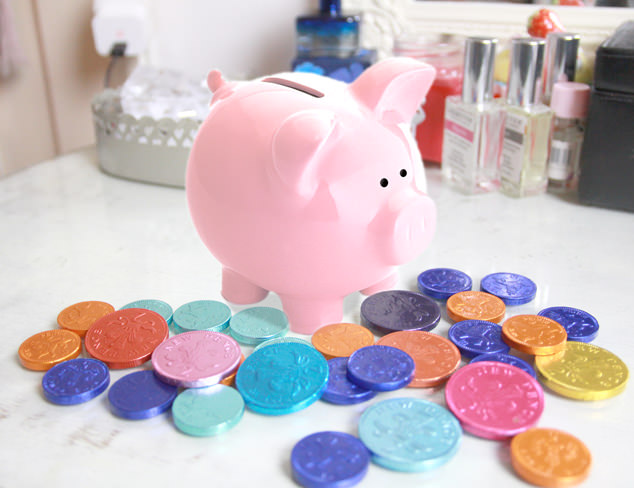Bad credit builds up from a person’s past credit mistakes like making late payments, defaulting on loans, etc. Having bad credit puts you in a tricky situation since most lenders don’t approve loan applications from people with bad credit. And even if they do, they won’t offer you favorable rates.
Thankfully, all of us can avoid bad credit by simply making the right credit decisions. Keep reading to learn more about bad credit and how you can rebuild it.
What “Bad Credit” Means?
If you have ever borrowed money or applied for a credit card, the three main bureaus open an active credit file for you. Everything you do, from credit transactions to loan applications, is recorded in that file. Lenders use this information to determine whether or not to give you a loan.
Your credit score is calculated based on the information on this report. Lenders consider people with high credit scores as less risky and are thus likely to approve their loan applications. Landlords also check the credit score and report to determine a person’s financial situation and decide whether to rent them an apartment or not.
Several factors can influence bad credit, including late payments, charge-offs, bankruptcy filing, and loan defaulting, among others.
What Factors Influence Your Credit Score?
Your credit score determines the loans, interest rates, and loan terms you will get. It helps the lender decide whether to offer you the loan in the first place. As such, you should protect and build it. Here are some factors that affect your credit score.
- Payment History
How you make your payments influences your credit score points. Even if you miss a payment once, it can significantly impact your score. Lenders need to be sure that you can repay the loan on time when reviewing your application. History of payments affects as high as 35% of your FICO score, which is used by many lenders.
- Level of Debt
Your debt level influences your credit score by 30%. Credit scoring calculators examine different factors about your debt when determining your score. Generally, lenders consider your credit utilization ratio got from diving your current total revolving credit by your revolving credit limit.
- Credit History Length
How long you’ve had your credit also influences your credit score. Lenders consider your oldest and newest credit as well as the average age of your accounts. Older credit puts you in a better position as it shows you’re experienced in handling credit.
How a Bad Credit Score Can Hurt You?
A bad credit score is somewhere between 300-579 for the FICO score. If using the VantageScore, the range is 300-600. With bad credit, you will miss out on great financial opportunities and pay higher interest rates on loans. It can make your life difficult in several ways, including:
Lenders Consider You Risky
You might not qualify for a traditional loan or credit card with bad credit. This is the most significant impact of having a poor credit score. But, you can seek loans from other less reputable and strict lenders like title companies, pawnshops, and payday loans. But even then, you’ll still not get the best terms.
You Pay More Interest on Loans
A good credit score qualifies you for better interest rates since lenders consider you less risky. But if a lender agrees to offer you a loan with bad credit, they charge higher interests to compensate for the risk they are taking on you.
High Insurance Premiums
Home insurance companies have the permission to factor in a person’s money when assessing their risk. A poor credit score will automatically increase your premiums. And sometimes if it is below 600, your policy might be canceled.
House Renting Difficulties
Most landlords need you to have a credit score of 620. Some may have a higher requirement than this. But if yours is poor, you may need to find a cosigner or pay a deposit first. Note that you can rent an apartment with bad credit, only that it is a bit harder.
How to Improve a Bad Credit Score?
A poor credit score is not a permanent situation. You can build it up by taking several steps. These include;
- Making Timely Payments Each Month
Since payment history affects your credit score largely, make sure that you are always paying your bills on time. Avoid late payments by all means as they can lead to collections, charge-offs, repossession, and foreclosures. Learn more here.
- Know the Bills to Report to Credit Bureaus
Unfortunately, there are still months that you may struggle with paying off everything. Thus, you will be forced to skip some bills. But, the best way to protect your credit score is to pay all the bills on your credit report, including loans, mortgage, credit cards, etc. Therefore, if you can’t afford to pay them now, have a repayment plan to avoid getting caught up.
- Pay Off Your Balances
Avoid debts if you can. If this isn’t possible, ensure that you make regular payments to reduce the balance you have.
Can You Get a Loan with Bad Credit?
Yes. Some lenders offer bad credit loans to those with a poor credit score or history. However, this isn’t the most suitable solution. Often, they’ll charge a higher interest rate and, sometimes, give you a short repayment term. But if you have bad credit and you are in dire need of financial help, you may find these loans worth it.
If you’ll apply for a bad credit loan, look at it as a personal loan. Don’t focus much on the interest charged. Instead, look at the financial benefit it offers. Also, take a loan that fits your budget to manage the payments.

